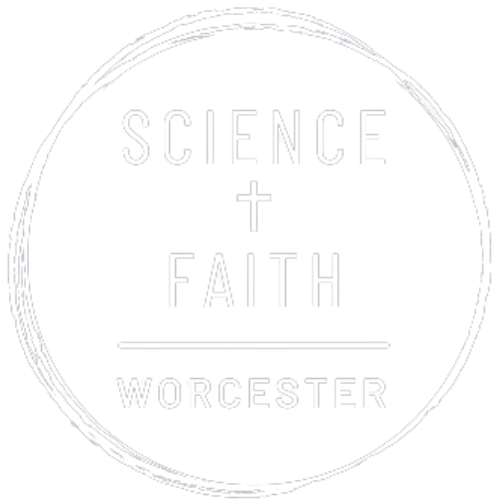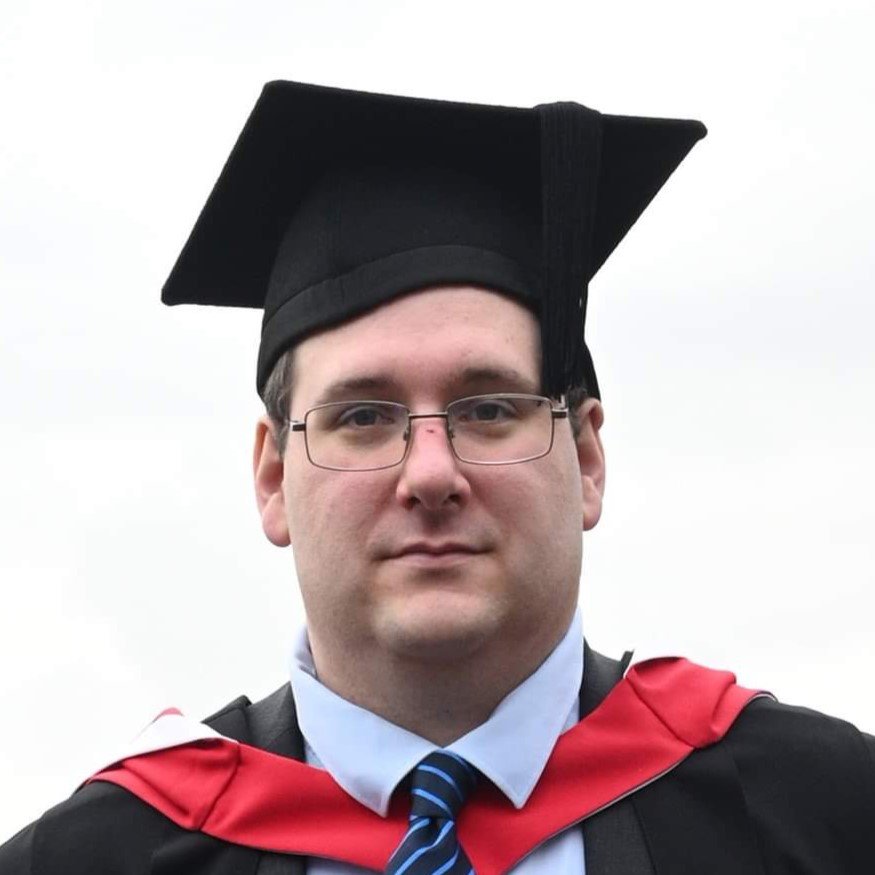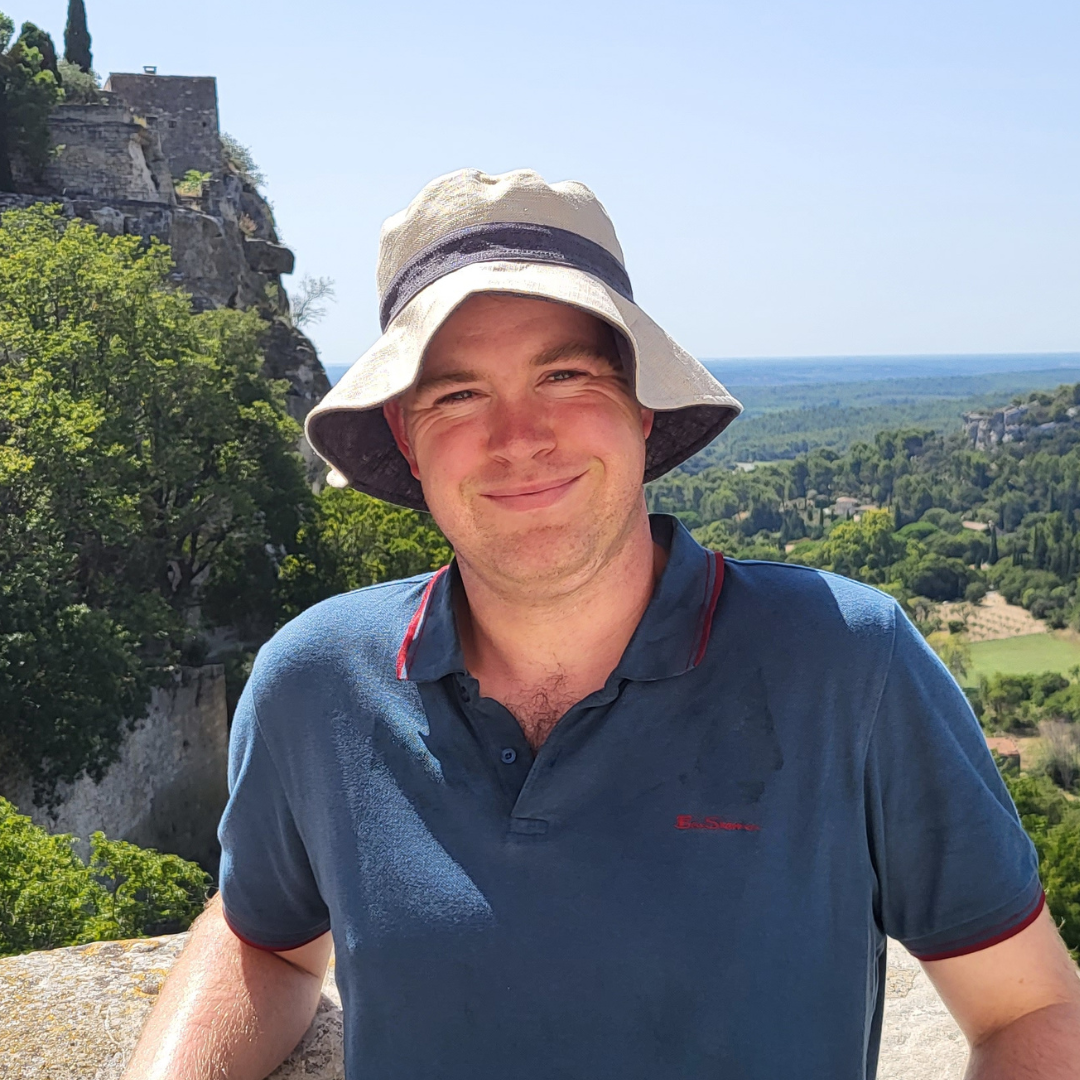APRIL 2025
A PRE-HISTORY OF VIOLENCE?
Revd. Dr. Stephen May
Stephen gave an extensive review of the emergence and the migration of our hominid cousins, leading to the emergence of homo sapiens. He then considered archaeological evidence for social level violence in various groups throughout pre-history. He went on to discuss how he saw Jesus Christ as providing the perfect example of humanity’s way of relating to God, to people and the world we live in.
FEBRUARY 2025
NATURE INSPIRED DESIGN - CHICKEN OR EGG?
Dr. Kim Stansfield
Kim provided a fascinating insight into ways that nature and life forms have been studied and used to create innovative solutions to seemingly impossible challenges. In this, he showed that many of the attributes needed by human innovators are described in the Bible and point to a guided development of life.
During his PhD in composite materials, Kim came to faith, and subsequently spent 26 years working in engineering and systems. The last four years of his working life were spent as an associate professor of Systems Engineering.
NOVEMBER 2024
AM I JUST MY BRAIN?
Sharon Dirckx PhD
In November, we welcomed Dr. Sharon Dirckx, adjunct lecturer at the OCCA, who gave a really excellent and clear presentation about the human identity and the role of the brain.
In this talk she explored both the physical science of what we understand the brain to be, and the limitations of a purely mechanistic view in terms of understanding our personal behaviour and consciousness. This included considering the role of Christian faith in establishing our understanding of our identity and purpose in the universe.
Sharon Dirckx is an independent speaker and author and also an adjunct lecturer at OCCA The Oxford Centre for Christian Apologetics. Originally from a scientific background, she has a PhD in brain imaging from the University of Cambridge and has held research positions in the UK and USA.
Sharon speaks and lectures on topics such as science and theology, ‘mind and soul’, human identity and the problem of evil. She has also appeared on several BBC programmes in the UK including Radio 2 Good Morning Sunday and Radio 4 Beyond Belief.
Sharon is author of an award-winning book on suffering, entitled Why?: Looking at God, evil and personal suffering (2013), as well as a book on human consciousness and identity, entitled, Am I just my brain? (2019). Sharon’s new book on natural disasters, entitled Broken Planet, was released in February 2023 and was longlisted for an award by the International Society for Science & Religion.
Please do visit Sharon’s website to find out more about her work and her publications.
OCTOBER 2024
MADE IN THE IMAGE OF GOD: RELATIONSHIP OR IDOL?
Tim Purkiss M.Sc
Tim introduced the audience to some of the shared creation stories from the Ancient Near East that have both commonalities and significant differences. In particular he considered the description of man being made in the image of God and what that meant for the different sacred texts. Specifically he focussed on the significance of the way the Hebrew scriptures in Genesis 1-3 establish God’s desire to have a deep relationship with his creation. This is in contrast with other creation story texts, which hold God to be remote from and independent from his creation with humanity viewed as little more than an annoyance. Tim sought to redefine what it means to be “Made in the image of God”, away from current views, instead to a new understanding, that of as Devoted Worshipers and Priest-Kings.
If you’d like to see Tim’s slides, click here.
The books Tim recommended in response to questions at the end are:
"God's Kingdom through God's Covenants: A Concise Biblical Theology", by Peter Gentry: https://amzn.eu/d/aQtO1nD
"Do Muslims and Christians worship the same God?", by Dr. Andy Bannister: https://amzn.eu/d/cSugCJ6
Tim is currently studying for his second post-graduate theology degree at Regents Theological College, in Malvern, following a career in IT Systems.
SEPTEMBER 2024
BY DESIGN: SCIENTIFIC EVIDENCE FOR A CREATOR?
Video presentation and discussion
Professors Steven Meyer, John Lennox and Michael Behe are three of the leading voices in science and academia on the case for an intelligent designer of the universe and everything in it (including us).
We watched the first thirty minutes of a video interview by Peter Robinson, as part of the Hoover Institution series of online discussions. During this initial part of the interview, the three academics discussed the range of scientific discoveries that have brought significant question marks over Darwin’s theories presented in “The Origin of the Species”. What became evident in the discussion was not that they challenged the occurrence of evolution, but rather that the limits of applicability of the evolutionary process had been far exceeded in explaining the developments of either life or significant new species.
At various key points of the video, we stopped to consider some questions that sought to understand whether there were alternative scientific theories to explain our observations in both the geological fossil record, the mathematics of probabilities of life being formed by random mutation or the cell biology that has emerged in the last fifty years.
You can download the flyer for this event here.
MAY 2024
AN EXPLORATION OF THE DEVELOPMENT OF MEDICAL RESEARCH ETHICS AND ITS RELATIONSHIP TO FAITH
Tom Fairman
In his talk, Tom explored the development of medical research ethics from World War 2 to the present day, and considered how our current practices and standards have developed. He looked at historic examples, the development of current codes of practice and possible future developments. He also considered whether an objective moral standard exists, or whether everything should be considered relative to its time, place, and societal context. To demonstrate this, Tom asked the audience to identify the sources of various statements about morals and ethics. At the end of the talk, he revealed that the statements, many of which could be seen as a Christian perspective, indeed came from other faiths. His discussion then led into considering whether an objective moral standard exists, and showed that the Bible might well be considered to provide a comprehensive source.
About Tom: In the 13 years since leaving university, Tom has worked with multiple systems of ethical and governance review both in the UK and around the world, and seen different application of processes and standards, as well as lead the development of UK NHS research governance standards. This includes working in medical research (UK NHS Research Ethics Committees (RECs), NHS research governance and, more recently, in the pharmaceutical industry responsible for global regulatory submission).
He came to faith through his family, and since getting married in 2015, has started to explore his faith in more depth. He finds the interaction between faith, morality and ethics fascinating, particularly in a research context, and hopes to share some of that interest with the audience.
In his spare time he enjoys chess, badminton, walking and playing games with his lovely little boy, Benji, now 4, who has far more energy than he does!
APRIL 2024
GLOBAL PERSPECTIVES ON SCIENCE AND CHRISTIANITY
Dr. Mike Brownnutt
Christianity has a rich diversity of expressions around the world. Similarly, science takes on diverse forms in different times, places, and cultures. It should then be no surprise that – in considering the interaction of science and Christianity – there is a radical diversity of questions that people have, answers that people find acceptable, and opportunities that arise for engagement.
Mike’s talk looked at challenges with the western “lists-based” approach to categorising what should be considered science and what constitutes faith and religion, in a highly interactive discussion. He drew on his experience of teaching during seven years in Hong Kong, to show how he had realised the fallacy embedded in the western model. He helped us see that the list of those things that might be considered unique to science and those things unique to faith are in fact both interlinked and appropriate for both areas. This then could be seen to be associated with ways that western thinking and education have imposed an false interpretation of what we observe and experience. The interactions with Mike continued on after his talk had finished.
Bio: Mike Brownnutt obtained his first Master’s degree (MSci in physics) and his PhD (in experimental quantum mechanics) from Imperial College London, UK. He then worked at the University of Innsbruck for eight years, writing his habilitation on his research there, which developed scalable architectures for trapped-ion quantum computers.
He completed a second Master’s degree (MA in theology from the University of Chester, UK) considering how faith is understood by various parties in discussions about Christianity and science. He spent seven years at the University of Hong Kong, serving as Associate Director of the Faith and Science Collaborative Research Forum, and researching framings for science and religion which do not pre-suppose Modernist assumptions.
He now serves as Course Director of the Faraday Institute in Cambridge. In his spare time, he is working on a PhD (with University of Birmingham) on non-Modern philosophy of science and religion. He also heads Every Nation Campus Academics, a church-based organisation seeking to engage with academics globally.
FEBRUARY 2024
ADA LOVELACE (1815-1852):
THE FIRST COMPUTER PROGRAMMER?
Dr. Kim Stansfield
At the meeting, Kim spoke about an incredible visionary, Ada Lovelace, who more recently has been seen to have had early foresight of the full potential of machine-based computers. This was recognised by her main collaborator, Charles Babbage, who himself created the blueprints of the first mechanical, general computer, the Analytical Engine.
The discussions ranged far and wide, on such issues as areas for development for the UK’s higher education system, where Ada’s view of her strength of seeing poetry in science and mathematics reached far beyond the limitations of a single discipline. We also had significant discussion on the impact of her extraordinary upbringing by her talented mother Isabella Millbanke, a social reformer, an accomplished mathematician and an aristocrat, with a passion for industrial education and help for all sectors of society.
It was also remarked that Ada’s short life of 36 years echoed her father Lord Byron ’s short life.
NOVEMBER 2023
2084: ARTIFICIAL INTELLIGENCE
AND THE FUTURE OF HUMANITY
Prof. John Lennox
In his recently published book “2084: Artificial Intelligence and the future of humanity”, Prof. John Lennox uses easily accessible English to introduce key aspects of Artificial Intelligence and how he believes this impacts the future of humanity. In particular, John investigates the way that his Christian faith helps him understand the questions of where humanity is going, and what it means to be a human being created in the image of God.
As a follow-on to his book, he has produced a series of videos, and we watched the introductory video, which explains core ideas. If you’d like to watch the video, here’s the link.
We stopped the video at various points, to discuss key questions that John Lennox considered, and had some lively discussion, during which intergenerational differences on the positive and negative impact of AI became apparent.
OCTOBER 2023
The Garage Incubator, birthplace of future industry
James Birkett
James Birkett, CEO of manufacturing start-up, Protogen 3D, discussed his insights into the manufacturing opportunities offered by more access to information and technology than ever, much of which has become accessible for people from different backgrounds and social conditions. He also addressed some key lessons for young entrepreneurs in terms of Christian values and behaviours that support constructive business environments.
He also considered how the apprenticeship education model followed by Jesus offers a practical way of building useful skills and approaches for young people. This extended into his view of the Bible being a fully referenceable source of knowledge and wisdom, some of which is echoed in the internet today.
A lively discussion followed his talk.
SEPTEMBER 2023
THE ROAD TO MANAURE AND THE SCHOOL IN THE DESERT:
What it tells us about sustainability
Dr. Kim Stansfield
In April and May 2023, Kim visited Colombia, South America, as part of a European collaboration program on the use of bio-waste materials for sustainable product and energy generation.
During his stay he visited Manaure on the North East coast, where he saw the depth of the sustainability challenges we face and witnessed God’s promises being fulfilled on a daily basis both personally and in a miraculous school in the desert. We heard stories of how he was kept safe through a series of potentially life-threatening situations, such as a near ambush in a remote location. In each situation, God made it clear that he was fulfilling his promise to protect and encourage Kim and his friends and colleagues.
The talk went on to look at how God engages with people with different backgrounds, gifts and skills to transform sustainability in difficult social environments. Kim explored challenging questions that stimulate technological and educational innovation in these communities.
We then had a wide-ranging discussion of ways of tackling the practical blockages to building sustainable communities.
















